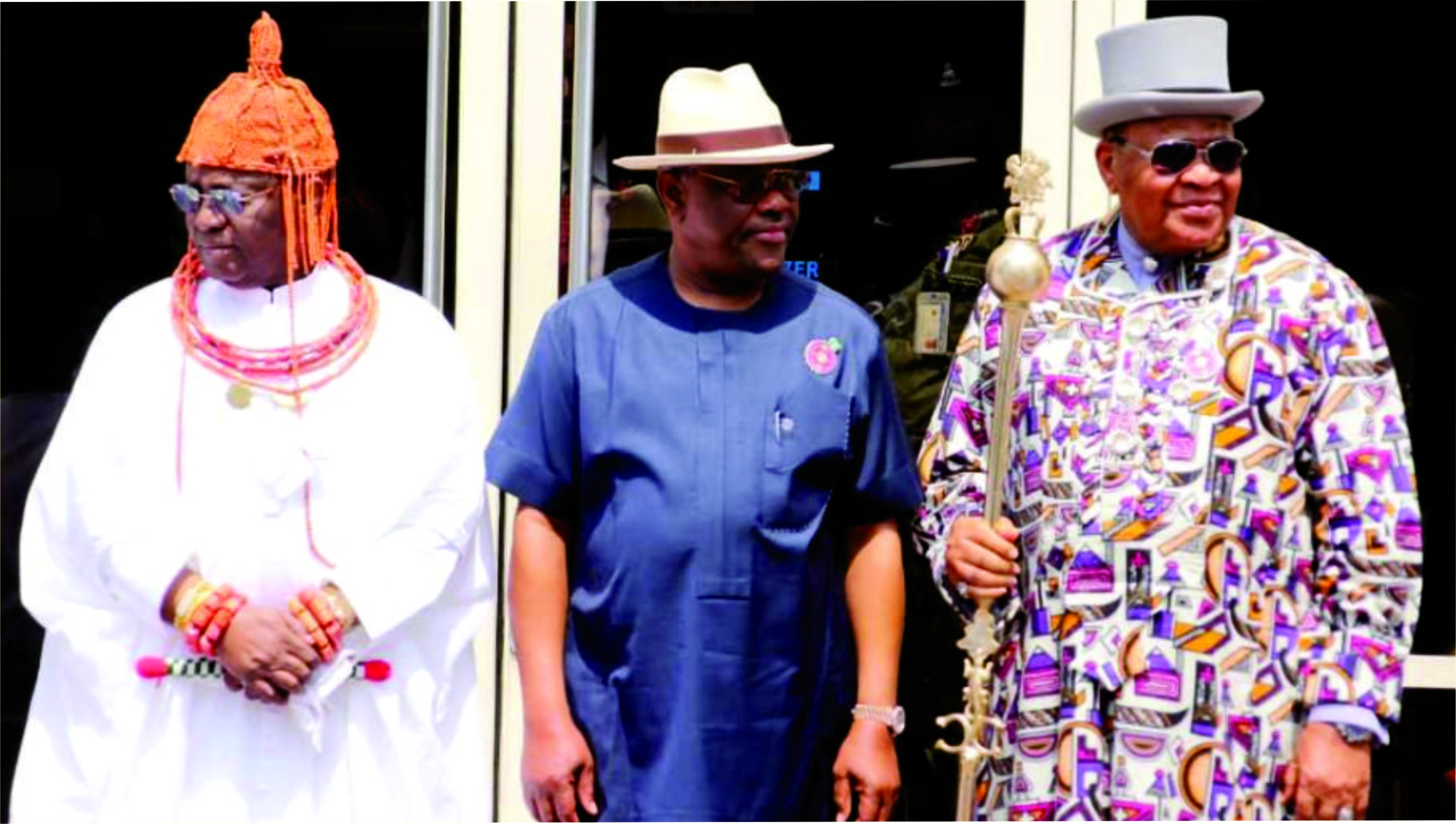Niger Delta
Benin Monarch Gets Documents On Returned Artefacts

The necessary documents for two of the returned artefacts, a cockerel (Okpa) and Uhunwun Elao, looted from the palace of the Oba of Benin, have been formally handed over to the Oba of Benin, Omo N’Oba N’Edo Uku Akpolokpolo, Ewuare II, 124 years after.
The necessary documentations were done at a colourful ceremony as Oba Ewuare II and others involved in the process signed the necessary documents in line with the British laws on the return of artefacts and the objects would at a later day be handed over to the monarch for keeps by the federal government.
To safeguard the artworks and others expected to be returned in future, Oba Ewuare II announced Prof. Wole Soyinka as a member of the board of trustees of the Benin Royal Museum, where the returned artefacts would be kept and be opened to the public, including researchers and scientists.
He listed Aghatise Erediauwa, Nduka Obaigbena, Aigboje Aig-Imoukhuede, Ifueko Omoigui-Okauru among others to be members of the board of trustees for the museum.
Oba Ewaure II, who commended the role played by the federal government in the return of the artefacts, said Benin art and culture reflect the past and present glory as well as splendour of the kingdom.
He said: “As our treasures are returned, our youths will be able to establish a new relationship with the heritage bequeathed by their forefathers. The return of all the treasures taken away will begin a new era of Benin history and civilisation.
“International best practice and the rule of law dictate that restitution and compensation is the new discourse.
“We ask that friendly countries seeking to return our artefacts should do so directly to the Oba of Benin or to the federal government, who will hold them in trust and return the same to the Palace of the Oba of Benin Kingdom as was recently done in Cambridge and Aberdeen.”
In his remarks, Ngerian High Commissioner to the United Kingdom, Ambassador Sarafa Tunji Isola, said the ceremony was in line with President Muhammadu Buhari administration’s commitment that all stolen artefacts should be returned to Nigeria and sent to their original owners.
He said: “In 1897, when the Benin aretefacts were taken away from Benin Kingdom, sovereignty was vested in Benin Kingdom under the leadership of the then Oba of Benin, Ovonranmwen Nogbaisi, the same sovereignty was then vested in respective kingdoms and its respective traditional rulers in the present day Nigeria.
“This explains why these artefacts are still being referred to as Benin bronzes up till the present day. Sovereignty is, however, currently vested in the federal government by the 1999 constitution (as amended).
“Hence, the legal and physical possession of the artefacts by the federal republic of Nigeria under the leadership of Buhari, my presence in Benin Kingdom today is in fulfilment of the desire and the express directive of the president to return the repossessed artefacts to where they originally belong.
“The present administration places much emphasis on the return of Nigerian artefacts to their original home, hence the painstaking efforts of the federal ministry of information and culture, with the tireless commitment of the national commission for museums and monuments to attain this presidential directive and mandate.”
The event attracted personalities from all walks of life including the Emir of Kano, Alhaji Aminu Bayero; representative of the Ooni of Ife; representative of the Minister of Health, Dr Osagie Ehanire, who is from Benin Kingdom.
Others were Minister of Niger Delta Affairs, Sen. Godswill Akpabio; former governor of Edo State and immediate past National Chairman of All Progressives Congress, APC, Mr Adams Oshiomhole; Pastor Osagie Ize-Iyamu; Ken Imansuagbon; former Deputy Governor of the state, Lucky Imasuen; palace chiefs and traditional rulers from other parts of the state.
Niger Delta
Bayelsa’s Aircraft Makes Inaugural Flight…As Lawmakers, Oil Minister, NDDC’S MD Hail Diri

Niger Delta
Traditional Ruler Seeks End To Benin Artifacts Unauthorized Promotion

Niger Delta
PINL Mulls Synergize With NDLEA Against Drug Abuse

-

 Sports4 days ago
Sports4 days agoBarca Impress On Return To Camp Nou
-

 Sports4 days ago
Sports4 days agoSunderland Fall At Fulham
-

 Sports4 days ago
Sports4 days agoBundesliga: Oliseh Stars As Bayern Rebound To Thrash Freiburg
-

 Sports4 days ago
Sports4 days agoForest Embarrass Liverpool At Anfield
-

 Niger Delta4 days ago
Niger Delta4 days agoTraditional Ruler Seeks End To Benin Artifacts Unauthorized Promotion
-

 Sports4 days ago
Sports4 days agoOgoni Nation Cup: Victory Against Amee Base Excites Coach
-

 Maritime4 days ago
Maritime4 days agoNSC Decries Police Interferences With Cargoes At Seaports
-

 Politics4 days ago
Politics4 days agoCleric Tasks APC On Internal Stability, Warns Otti

